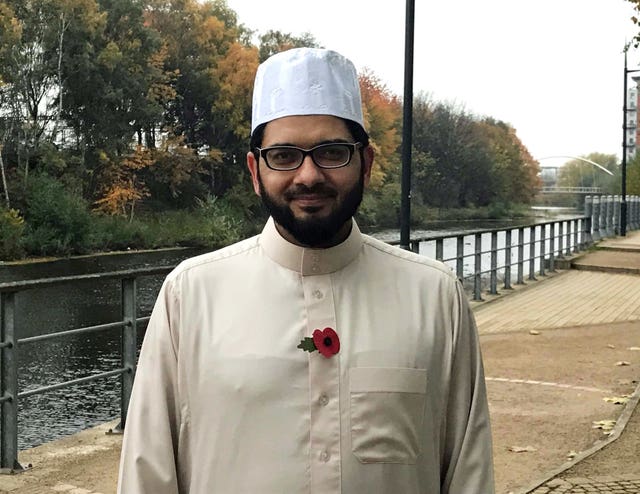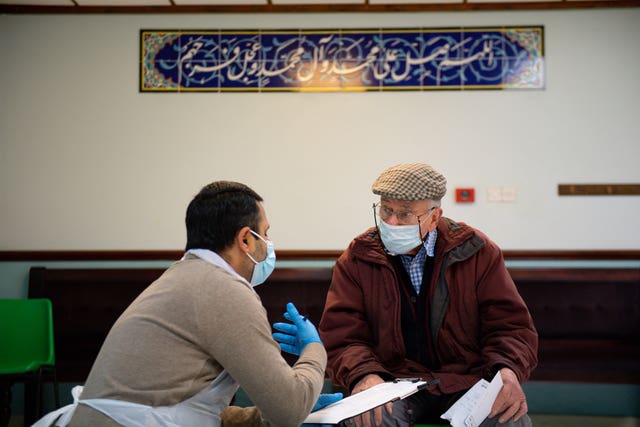‘Tide has turned’ on vaccine hesitancy in black and Asian communities, says imam
Qari Asim has urged households not to mix as Ramadan begins despite lockdown easing.

One of Britain’s leading imams has said he believes the “the tide has turned” on Covid-19 vaccine hesitancy in black and Asian communities.
Qari Asim, senior imam of the Makkah Masjid, in Leeds, and chairman of Mosques & Imams National Advisory Board (Minab), was speaking as he urged households to resist the urge to mix as the month of Ramadan begins.
Imam Asim said: “The vast majority of scholars believe that taking the vaccine in the month of Ramadan will not break the fast.”
He said: “The message from Muslim religious leadership is that one should not miss the opportunity to take the vaccine when they are invited to do so.”
Imam Asim told the PA news agency: “I firmly believe the vaccine hesitancy has been reduced tremendously.
“The credit goes to the community champions, religious leadership, and NHS workers.”

He said: “I think the tide has turned. More and more people from black and Asian ethnic minorities, including Muslims, are now taking up the vaccine”.
The senior imam said there are communications ongoing with the NHS in different parts of the UK to see if there is an opportunity to have vaccination centres in or around mosques open after sunset, so that people can have the the vaccine after breaking the fast.
Imam Asim stressed that despite “seeing the light at the end of the tunnel”, people must wait until restrictions are lifted to come together.
He said: “My advice as chair of Mosques and Imams National Advisory Board is to please continue to follow the government restrictions.
“As the restrictions are being eased, there is obviously a temptation to come together to break the fast because it’s a time of rejoice and connecting with our family and friends.
“But my advice to the Muslim community is that we should remember the incredible sacrifices that we’ve made in the last 12 months and also the lives that have been lost and the lives that have been changed during the pandemic.
“Reflecting on that, we should continue to follow the government guidelines and break the fast with outside households only virtually.”
The imam outlined how Muslims are now able to attend mosques and said measures are in place to minimise the risk of transmitting Covid-19.

Tarawih prayer is usually one of the main features of Ramadan, where hundreds of people go to mosque to pray together at night.
The whole of the Koran is usually recited at a mosque by the end of the month.
This year, Koran readings will be shortened and social distancing and safety measures will be in place to reduce risk as much as possible, Iman Asim said.
Imam Asim said: “It’s a very painful step and an emotionally challenging step to take.
“But protection of life is of the upmost importance and therefore Minab’s advice to mosques has been to celebrate Ramadan safely but meaningfully.”





